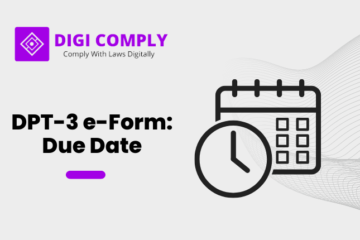The In-Country Value (ICV) certification was originally introduced in 2018 by the Abu Dhabi National Oil Company (ADNOC) as a strategic measure to stimulate GDP diversification, promote Emiratization, and encourage thoughtful economic development.
- Subsequently, in 2021, the program expanded to a national level under the auspices of the Ministry of Industry and Advanced Technology (MoIAT).
- The National ICV Certification program offers suppliers the opportunity to secure tenders from government and semi-government entities.
- Participating suppliers can enhance their tender evaluation by obtaining an ICV certification, which assigns them a score based on their contributions as per their latest audited financial statements and other relevant factors.
- To navigate the challenges associated with the certification process, suppliers can seek assistance from top auditing firms in Dubai or specialized ICV certification services.
Requirements for Obtaining ICV Certification in the UAE:
1. Multiple legal entities belonging to a supplier must obtain individual ICV certificates, even if they share the same owner, as the government treats each license as a distinct legal entity.
2. Companies with multiple branches conducting ownership and activities in the same emirate will receive a combined ICV certificate for that specific emirate from the MoIAT.
3. The figure entered in the ICV certificate must align with the audited financial statements of the supplier, prepared in accordance with the International Financial Reporting Standards (IFRS).
4. The audited financial statements must be from the most recent two years, relative to the certification year. For instance, for ICV certification in 2021, audited financial statements should not be older than 2019.
5. Companies less than 10 months old may lack audited financial statements. In such cases, they can submit management accounts for a 9-month period to calculate the ICV, provided they are audited.
6. The ICV certificate remains valid for 14 months from the date of issuance of the audited financial statements. Suppliers seeking recertification can use the same audited financial statements within this validity period.
7. Suppliers must appoint an empaneled certifying body in the UAE to issue the ICV certificate, and changes in certifying bodies within a given year require proper justification.
8. Companies that manufacture and supply finished products to customers are classified as Goods Manufacturers under the ICV initiative, requiring an Industrial License in the UAE.
9. Suppliers not engaged in manufacturing or lacking an Industrial License fall under the category of Service Providers for the ICV certification program.
Process for Obtaining ICV Certification in the UAE:
The Ministry of Industry and Advanced Technology (MoIAT) has streamlined the certification process, which can be facilitated by the best ICV certification service providers in Dubai. The following steps must be followed to obtain the ICV certificate:
1. Prepare audited financial statements for the supplier or company, adhering to IFRS standards.
2. Complete the certificate application form in accordance with the latest guidelines and financial statements.
3. Submit the application as directed by the relevant authorities.
Benefits of Obtaining ICV Certification in the UAE:
1. Enhanced access to new customers and potential partners.
2. Competitive advantage in securing government contracts.
3. Increased brand recognition.
4. Simplified access to financing.
5. Augmented reputation and credibility in the market.
In conclusion, the ICV certification program in the UAE presents significant advantages for suppliers, encouraging economic growth, and fostering strategic development in line with the nation’s goals. Suppliers can leverage the expertise of reputable ICV certification service providers to ensure compliance and optimize their prospects in the market.
If You have any queries then connect with us at support@legalsuvidha.com or info@digicomply.in & contact us & stay updated with our latest blogs & articles





